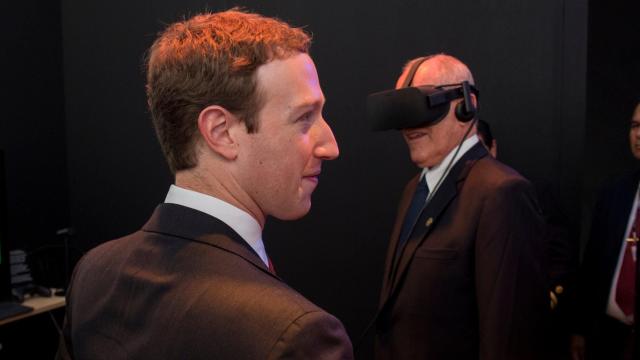Mark Zuckerberg is all about the metaverse these days. By metaverse we mean a hypothetical future version of the internet that functions as a persistent, three-dimensional virtual world enabled by technology like VR and AR headsets. The metaverse, sort of, already exists in forms ranging from video gaming and virtual chat apps and the internet already functions as a bizarre parallel reality, but Zuckerberg is so convinced this is the future that Facebook Inc. renamed itself to Meta and has plans to start pushing hardware in retail stores.
Zuckerberg obviously didn’t come up with this concept, but rather ripped it off from decades of sci-fi. The name was first coined by Neal Stephenson’s 1992 novel Snow Crash, which built on tropes introduced by movies like Tron and William Gibson’s 1984 novel Neuromancer such as hackers walking around in virtual worlds generated by computers and heavy influences from the punk subculture. Both before and after Snow Crash, though, one may notice that virtually all fictional versions of the metaverse are kind of dystopian — either imagining it as a form of escape from a crumbling physical reality ravaged by unchecked capitalism or an entry to a dangerous new one, privy to manipulation and new forms of control by powerful mega-corporations, malicious hackers, and demonic artificial intelligence. Or, you know, sometimes it’s just taken over by a serial killer.
These nine old movies (we’re defining “old” as released prior to the turn of the millennium) are a flashing warning sign to steer clear of Facebook’s forthcoming Metaverse. Otherwise, you might make out with a TV, get melted by a microwave, kill your spouse in VR, or awaken a monstrous digital god who will consume us all.
Videodrome (1983)
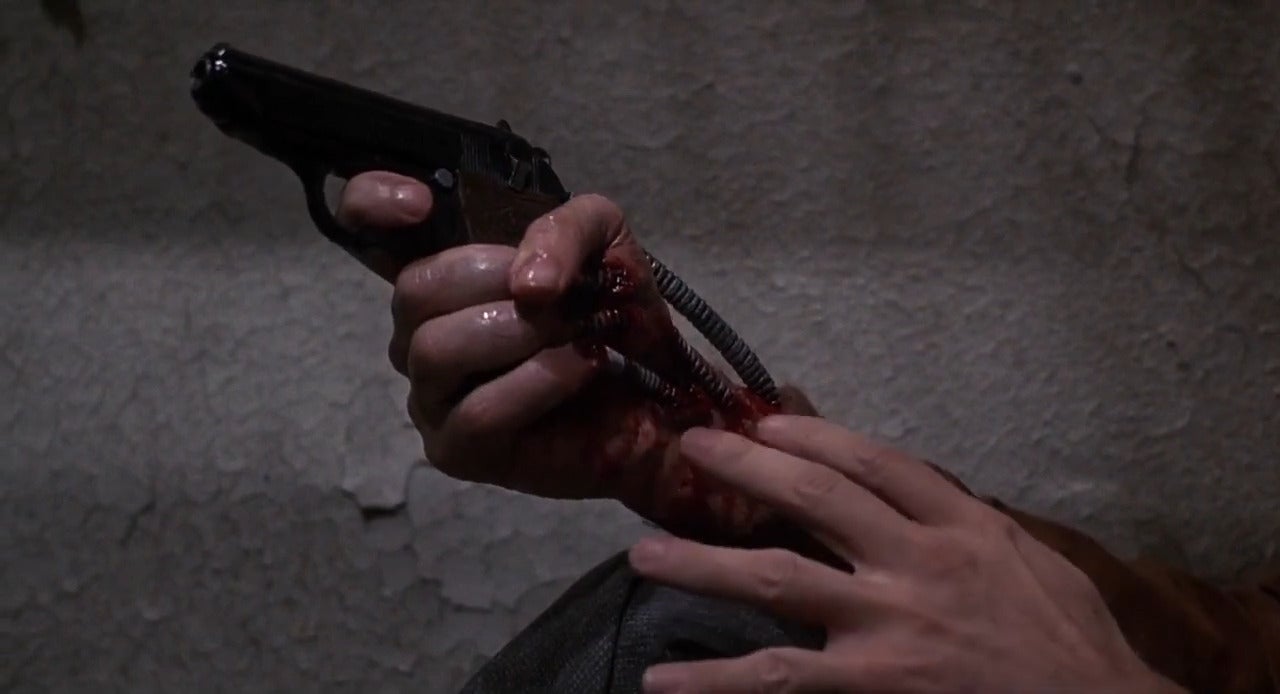
David Cronenberg’s Videodrome explored metaverse-like concepts all the way back in 1983, except instead of computers, the technological invention that blurs the boundaries of physical reality and consciousness beyond recognition is plain old broadcast TV. Max Renn (James Woods) is a sleazy Toronto-based executive of a UHF station that focuses on extreme programs; by sheer chance, the station’s satellite dish picks up Videodrome, a show broadcast from Malaysia that shows anonymous victims being brutally tortured and murdered in a cell. The Canadian equivalent of Federal Communications Commission regulations apparently not existing in this universe, Max decides to rebroadcast the show to his audience without a licence.
Things could be euphemistically said to go downhill from there as Max discovers there is a lot more going on with Videodrome than murder for profit. Nightmarish imagery in the film includes horrific amalgamations of machine and body, like a phallic gun merged into raw flesh, a video cassette being shoved into a man’s torso, and television screens made out of human skin. So to put it another way, Max might as well have applied for a job at Facebook as a metaverse moderator.
Total Recall (1990)
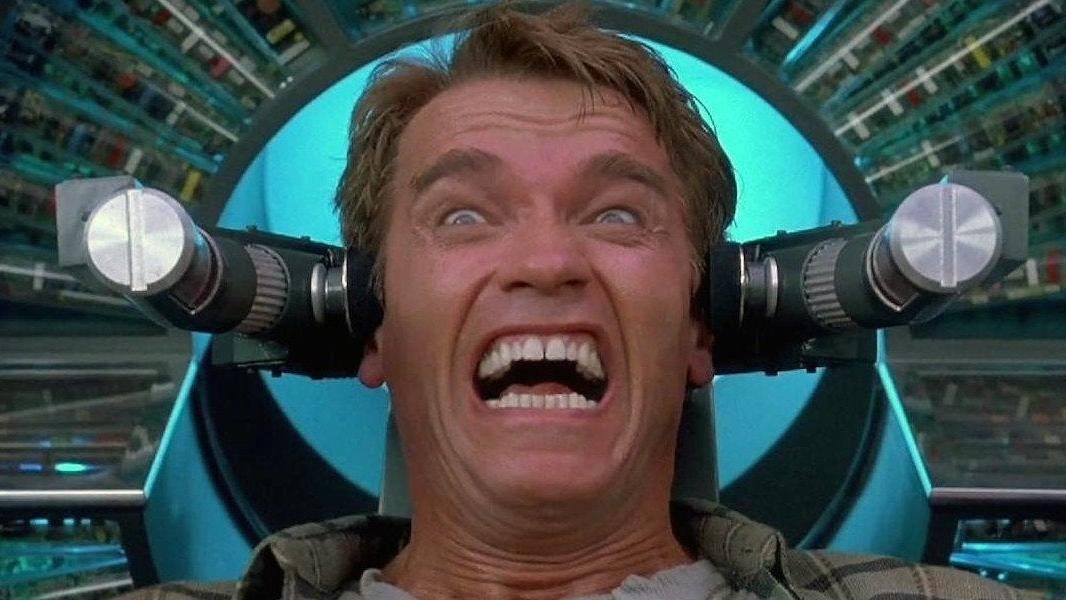
Based on a 1966 short story by Philip K. Dick, Total Recall’s Douglas Quaid (Arnold Schwarzenegger) is a run of the mill construction worker who, bored of his mundane life, decides to purchase a memory implant from a company called Rekall that will allow him to experience a tailored fantasy of being an elite secret agent. This is apparently a common substitute for a vacation in the year 2084. In the middle of the procedure — or is it??? — Quaid realises that he really is a secret agent. He discovers his best friend and wife are actually operatives of a Martian regime that runs a mining colony with a totalitarian fist before deciding to go to Mars and team up with the rebellion to fight for worker’s rights.
It is only at the end of the movie that Quaid pauses to ponder whether he’s actually just living out his prepaid virtual vacation. He decides he’s better off ignoring the question and just living in the meta-moment. That’s probably for the best because the alternative explanation brings a lot of uncomfortable questions, such as what kind of status updates Rekall scraped to determine his ideal virtual vacation involves violently murdering his simulated wife.
The Lawnmower Man (1992)
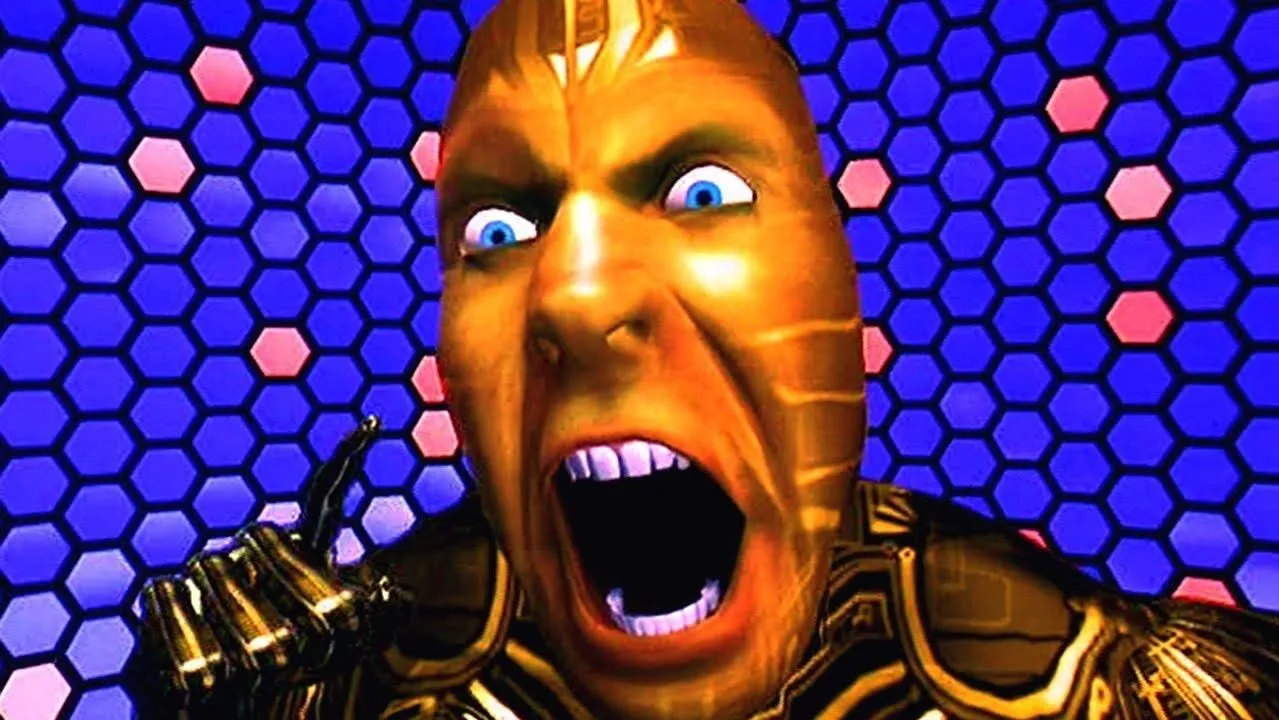
The 1992 science fiction horror film The Lawnmower Man is perhaps best known for having absolutely nothing to do with Stephen King’s 1975 short story, The Lawnmower Man. In the original King story, a man hires a new grounds-keeping company to mow his lawn; he promptly discovers that his new gardener is a cultist to the trickster god Pan (who also happens to mow the lawn buck naked with a sentient lawnmower). Our erstwhile protagonist refuses to abide by these new terms of service, and the cultist promptly murders him by ordering the lawnmower to chop him into pieces.
If anything, the movie version is… weirder, and is closer to Of Mice and Men. A scientist with ties to the military-industrial complex gives a simple-minded gardener intelligence-enhancing treatments; this makes the subject so smart he somehow develops psychic powers, goes on a murder spree, and eventually declares his intention to become a god made of pure energy. He’ll accomplish this by escaping into the computer, of course. Humanity’s sick new deity then announces his birth by making all the phones on the planet ring at once, which is kind of like Facebook notifications if you squint your eyes and think about it.
Ghost in the Machine (1993)

Coming right on the heels of The Lawnmower Man, the 1993 film Ghost in the Machine ponders what happens when a notorious serial killer — who steals address books from potential victims and is called the Address Book Killer — gets in a car crash and happens to be put into an MRI machine at the exact same time as a lightning strike. The obvious outcome is that he dies but his brain scan is uploaded into the power grid, giving him the power to kill people with appliances. He’s also in the computer.
This movie is notable for three things. One, it has an absolutely spectacular, and utterly disgusting, kill scene involving a microwave oven and bubbling/bursting flesh. Two, it has a scene involving a babysitter’s breasts, a $US20 ($28) bribe, and children that has somehow aged more poorly than the rest of the movie. Three, at the end of the movie, the Address Book Killer mutates into a being made of pure voxels or whatever. French chef kiss.
Johnny Mnemonic (1995)

This 1995 cyberpunk film, based on a story by William Gibson, depicts a society ravaged by a digital plague caused by a virtual internet, dubbed “nerve attenuation syndrome.” It stars Keanu Reeves as Johnny, a “mnemonic courier” who has replaced his childhood memories with a digital storage box he uses to transport encrypted, sensitive data for mega-corporations; driven by the desire to have this implant removed, he accepts a job involving a risky amount of data. But, of course, it goes wrong, and our intrepid hero is pursued by both Yakuza gangsters and mercenaries from the villainous Pharmakom corporation. Johnny eventually discovers the data is the cure to the plague and allies with a punk gang called the Lo-Teks to release it, having to hack his own mind in the process.
This is a stark warning to the public that if they connect their minds to Zuckerberg’s metaverse, Keanu Reeves may be nominated for another Golden Raspberry Award for Worst Actor.
Ghost in the Shell (1995)
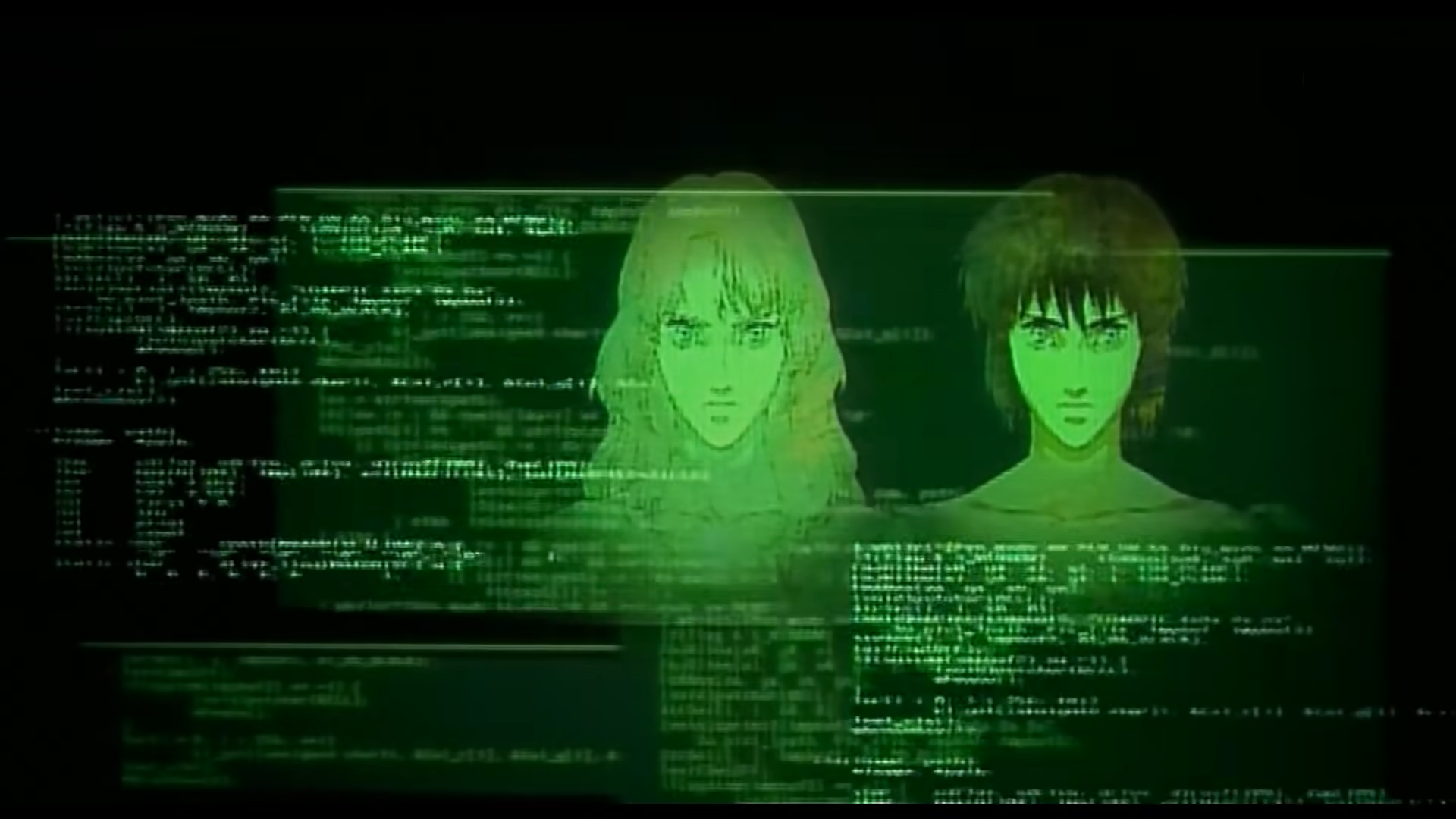
Also released in 1995 is the anime movie Ghost in the Shell, an adaptation of the manga of the same name which focuses on Public Security Section 9, the information security and intelligence department of a police department in a dystopian future Japan. Its key operative is cyborg commando Major Motoko Kusanagi, who heads its assault team.
Cybernetic brain implants are ubiquitous in this future, and the plot centres around the Puppet Master, a hacker who “ghost hacks” individuals via phone calls to assume control of their minds and force them to do their bidding. Eventually, a conspiracy is unveiled, and — without getting into too many spoilers — the film delves deep into questions surrounding the nature of consciousness, the value of artificial vs. human life, and what exactly constitutes a soul.
Facebook is interested in none of these questions, but it would eventually really like to be able to beam ads into your brain, so.
Virtuosity (1995)
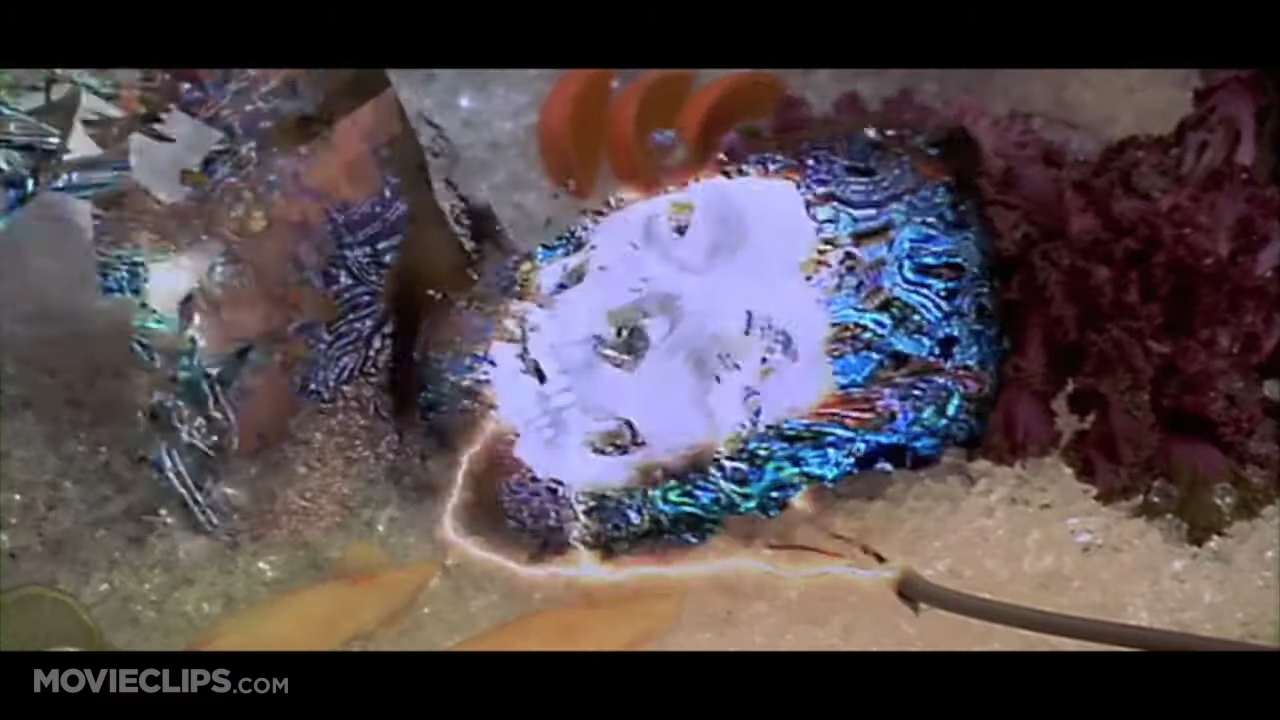
1995 was sort of a banner year for weird movies about cyberspace. We’ll leave it to Gizmodo colleague Cheryl Eddy to summarize the pitch of Virtuosity, yet another movie released that year involving metaverse-like concepts and starring both Denzel Washington and Russell Crowe:
So, the LAPD is developing a VR program to train its officers, with convicts serving as guinea pigs. Washington plays Parker, an ex-cop who’s doing time for killing the terrorist who murdered his wife and daughter, who becomes one of the test subjects. There are already some obvious flaws with this plan; it seems a wee bit impractical, not to mention majorly cost-prohibitive. But the worst part is that the “game” was designed by a mad scientist who modelled its constantly evolving antagonist after history’s worst criminals, including Hitler, Manson, and (of course) the dude who killed Parker’s family.
This villain (played by Crowe) is named SID 6.7, which stands for “Sadistic, Intelligent, Dangerous.” It takes, oh, 30 minutes into Virtuosity for SID 6.7 to emerge buck naked from VR-land and begin terrorizing the real world. Just like in the game, Parker is dispatched to bring him in, only this time he has a Snake Plissken-style “do or die” implant under his skin.
This movie raises the chilling concept of Mark Zuckerberg eventually abusing the metaverse to transfer his consciousness into a body, any body at all.
eXistenZ (1999)
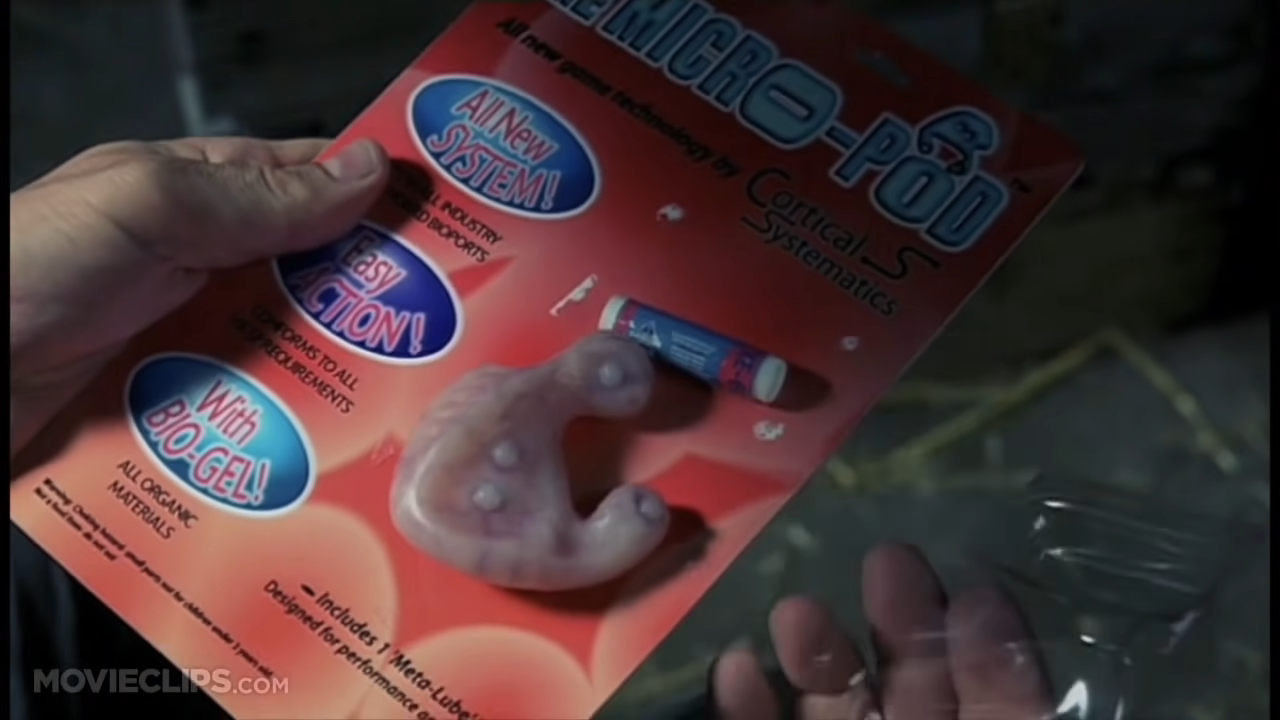
1999’s eXistenZ is another Cronenberg film, though this time we’ve jumped from the TV-based, pseudo-metaverse of Videodrome into full-on virtual reality powered by biotechnological implants (“UmbyCords,” which connect via “bio-ports” directly into a player’s spine). Antenna Research game designer Allegra Geller (Jennifer Jason Leigh) is shot and wounded by a pro-reality extremist, damaging her bio-port; her publicist Ted Pikul (Jude Law) agrees to get his own bio-port to help her test the safety of her latest game, the eponymous eXisteZ. Eventually, they encounter a plot to destroy the game with diseased game pods, but as they dive deeper into layers of virtual reality Inception-style they lose the ability to distinguish what’s part of the game and what exists in reality.
In other words, this is basically about what will happen when QAnon gets Oculus headsets.
The Matrix (1999)
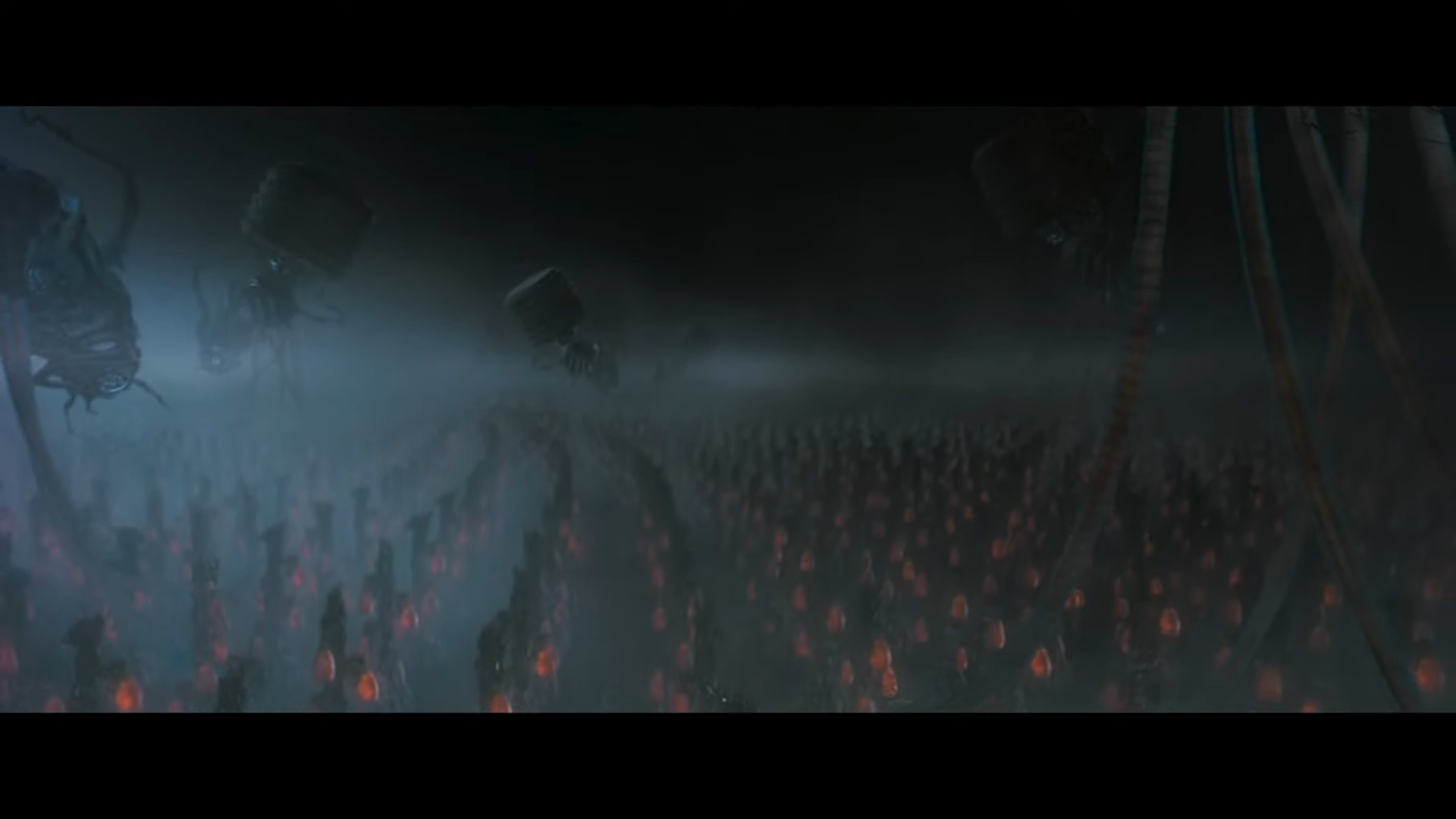
We’ll wrap up this list with the king of metaverse films, 1999’s The Matrix. You know what this is about: Neo (Keanu Reeves) is a hacker who discovers that the entire world is actually a simulation run to distract the human captives of a world-spanning supercomputer, which uses human bodies as bio-batteries or something (this is never really explained). He joins a resistance movement of Matrix escapees who live in the real world, which is revealed to be a ravaged hell created by geoengineering gone wrong. Neo finds himself to be a chosen one with fantastical superpowers within the Matrix, leading to a lot of kung-fu fight scenes and slow-motion gun battles as he’s chased down by nefarious programs called Agents that enforce human subservience to the Matrix’s will.
Anyhow, this is Facebook’s metaverse with extra steps.
